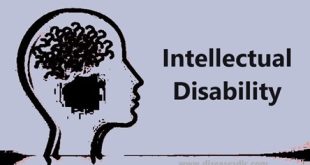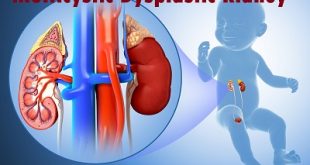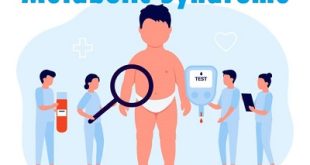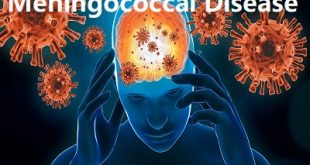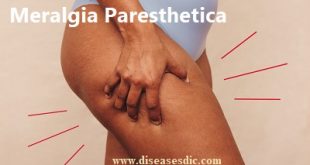Definition
Misophonia, also known as the “hatred or dislike of sound,” is characterized by the sensitivity to specific sounds, accompanied by an unpleasant emotional and/or physical response. People with misophonia liken the experience of the sound trigger more closely to irritation, disgust, or even pain, rather than anxiety or fear. The sounds that trigger this discomfort are typically highly specific, including sounds emitted in the context of common human behavior (e.g., chewing, breathing, swallowing, stepping, tapping, and speaking). In some cases, the extreme sound sensitivity is associated with a specific individual (e.g., “her brother chewing” or “his mother’s voice”). In other cases, symptoms may me more generalized (e.g., “women’s voices”), or to environmental stimuli (e.g., “fluorescent lightening”).
Triggers of Misophonia
Specific, unpleasant noises are the primary triggers of misophonia. Chewing noises tend to be the most common trigger, but sounds like slurping, clicking, sniffling, tapping, cracking knuckles, clipping nails, and crunching can all be triggers as well. Some people experience misophonia in response to sounds made by inanimate object like motors whirring, clocks ticking, or machines running.
Other triggers of include:
- Feeling trapped with a particular sound
- Believing someone is making that sound on purpose
- Experiencing stress in other areas of life
Misophonia risk factors
Risk factors are unknown. It is possible–but far from certain–that the following factors may contribute to a risk of developing misophonia:
- Anxiety or anxious personality
- Autism
- Hearing impairment
- Obsessive-compulsive disorder
- Other sensory processing disorders
Causes
The definite cause is not known yet. But the doctors have confirmed that Misophonia is not due to any hearing disorder (problem with your ears) or entirely a psychiatric issue. It is considered partially a mental and physical illness, also known as a brain-based disorder. In many cases, Misophonia occurs along with an anxiety dysfunction like –
- Obsessive-compulsive disorder (OCD)
- Tourette’s disorder
- An eating disorder like anorexia nervosa (self-starvation) and bulimia nervosa (eating large amounts of food).
Symptoms of Misophonia
Misophonia usually develops in early adolescence, and many people describe first becoming aware of triggers in their parents or primary caregivers growing up. It may become more pervasive over time, producing more triggers or a stronger reaction, or it might remain relatively stagnant in its severity. While people may notice they are more tolerant of triggers when they are displayed by someone they know or love, the reaction is generally present regardless of the company.
Some trigger responses may include:
- Crying related to agitation
- Panic attacks
- Removing oneself from the area
- Inability to speak or move
- Moderate to severe agitation
- Violent thoughts or impulsivity
- Intense anxiety
- Increased heart rate
- Sweating
The overwhelm of emotions and intense physiological reactions to triggers can cause some people with misophonia to seek alcohol or drugs to help cope. Though some have said the mind-altering effects can diminish the effects of a trigger at the moment it arises, cumulative substance use can have the opposite effect, heightening someone’s overall sensitivity to triggers. For this reason, people with misophonia are generally discouraged from alcohol and drug use.
Complications of Misophonia
The potential complications may include:
- Disruption of normal, day-to-day activities
- Decreased quality of life
- Social isolation
- Inability to concentrate and perform tasks
- Anxiety and depression
- Outbursts, which may be violent
- Thoughts of suicide
Diagnosis and test
It is not an official diagnosis, and some doctors may mistake misophonia for anxiety or another disorder. Researchers at the University of Amsterdam suggest that misophonia be considered a type of obsessive-compulsive disorder and propose that misophonia be diagnosed based on the following criteria:
- The presence or anticipation of a specific sound produced by a human being instantly provokes disgust or irritation followed by anger.
- A person senses a loss of self-control initiated by anger.
- The person recognizes their anger as unreasonable.
- The person tends to avoid situations that would cause triggers, and experiences extreme discomfort when forced to endure triggers.
- Misophonia causes great distress or interferes with a person’s day-to-day life.
- The symptoms are not explained by another disorder.
To make a diagnosis, a doctor will need to consider trigger reactions and co-occurring conditions as well. They might use a misophonia test like the Misophonia Assessment Questionnaire. It is most likely self-diagnosed or identified by a friend or family member.
Treatment and medications
There are currently no established treatments. However, some treatment options that may be beneficial include:
Cognitive behavioral therapy (CBT): This approach can help people change some of the negative thoughts and associations with the sounds that typically trigger a response.
Medications: While there is no medication approved to treat misophonia, medications may be prescribed to treat co-occurring conditions such as anxiety or depression.
Tinnitus retraining therapy (TRT): This approach involves wearing a device to produce attention-diverting noises, therapy to teach people to ignore the noises, and relaxation techniques to minimize the automatic stress response. While traditionally used in the treatment of tinnitus, TRT may help people with misophonia learn to better tolerate certain triggering noises.
Ways to cope with symptoms of misophonia are:
- Getting regular exercise
- Getting plenty of sleep
- Managing stress
- Wearing headphones or ear plugs
- Creating a quiet space in your home
Prevention of Misophonia
Presently, there are no guidelines or methods available for the prevention of Misophonia.
- Seeking medical attention for certain psychological conditions and eating disorders may help decrease the possibility of excessive emotional reactions seen in this disorder
- Caffeine is known to exacerbate the symptoms. Therefore, limiting caffeine intake may help manage the symptoms better
- Active research is currently being conducted to explore the possibilities for treatment and prevention of Misophonia
- Regular medical screening may be recommended
 Diseases Treatments Dictionary This is complete solution to read all diseases treatments Which covers Prevention, Causes, Symptoms, Medical Terms, Drugs, Prescription, Natural Remedies with cures and Treatments. Most of the common diseases were listed in names, split with categories.
Diseases Treatments Dictionary This is complete solution to read all diseases treatments Which covers Prevention, Causes, Symptoms, Medical Terms, Drugs, Prescription, Natural Remedies with cures and Treatments. Most of the common diseases were listed in names, split with categories.
